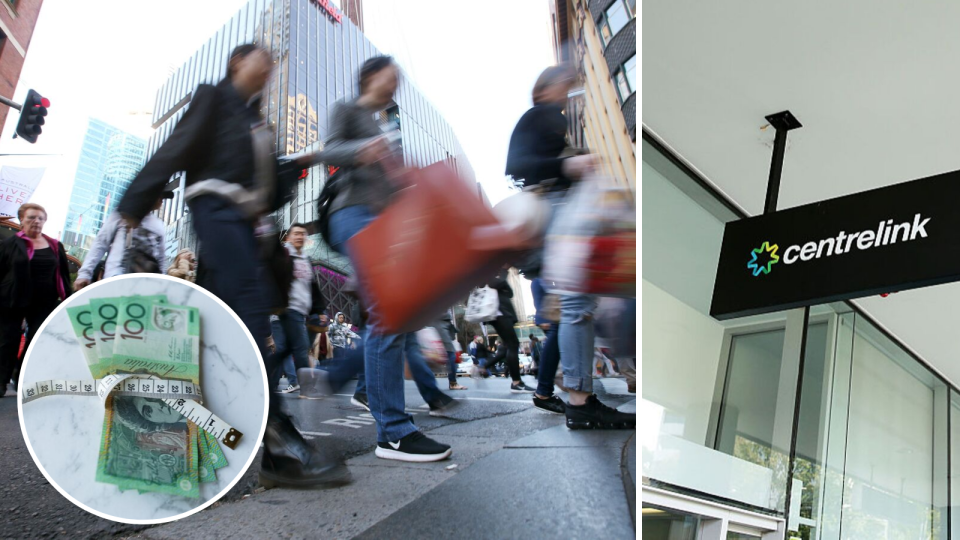More than 7 million Aussies would be on Centrelink if they lost their job

More Australians are struggling to pay their bills compared to the same time last year.
In 2018, 5.5 million Australians admitted they struggle to pay the bills, aren’t saving regularly and don’t feel secure in their jobs – but that figure has risen by 2 million to nearly 7.5 million this year.
According to the 2019 Financial Consciousness Index (FCI), commissioned by comparethemarket.com.au and developed by Deloitte Access Economics, if things took a turn for the worst, millions of Aussies would be forced to turn to Centrelink to get by.
Related story: Aussies on Newstart have less than $100 a week, after paying rent
Related story: Newstart recipients to lose benefits if they refuse drug test
Related story: ‘Dead-end strategy’: Centrelink drug test proposal slammed
This year, 13.4 million Australians say they don’t have emergency funds to fall back on if they couldn’t earn an income for more than three months, up 1 million from last year.
That means that more than a third of Australians – or 7.3 million, nearly a million more than last year – would be forced to go on government benefits such as Newstart or Centrelink if they lost their job, according to the FCI. A further 4.3 million would lean on their friends or family.

“The number one ‘plan B’ for Australians is now to rely on government support or benefits (37 per cent, up from 33 per cent in 2018) – a worrying signal for Australia’s governments,” the report said.
Comparethemarket.com.au banking expert Rod Attrill said it was clear the personal financial circumstances had worsened for many Australians.
“These figures can’t be ignored,” he said.
“With just 32 per cent of Australians admitting they have emergency funds set aside to enable them to survive a sudden and unexpected financial loss, and only 14 per cent of Aussies this year saying they save more than 20 per cent of their income, many feel there is little they can currently do to improve their ability to pay bills and build a financial safety net.
“It’s an even greater concern that the number one ‘plan’ for Aussies struggling to keep their head above water when it comes to money matters is to rely on government support and benefits,” he added.
Related story: Let Newstarters on 'crappy money' work more hours: Jacqui Lambie
Related story: Aussies on Newstart often too sick to work, study finds
“Alongside the current push for increases to the Newstart allowance, this should signal a big red flag for the Federal Government as more and more consumers continue to rely heavily on the help of others.”
The 2019 FCI comes as new research from RMIT University shows a single person on Newstart would use a stunning 70 per cent of welfare payments for rent in a share house, leaving just $98 a week on average to live on.
Yahoo Finance’s All Markets Summit is on the 26th of September 2019 at the Shangri-La, Sydney. Check out the full line-up of speakers and agenda for this groundbreaking event here.

 Yahoo Finance
Yahoo Finance 
